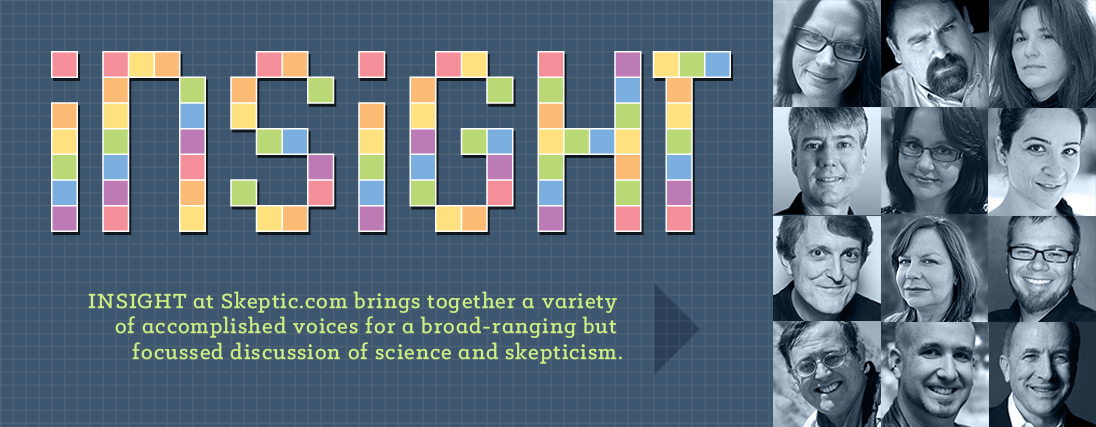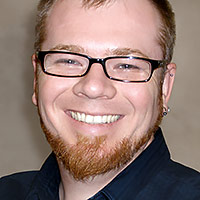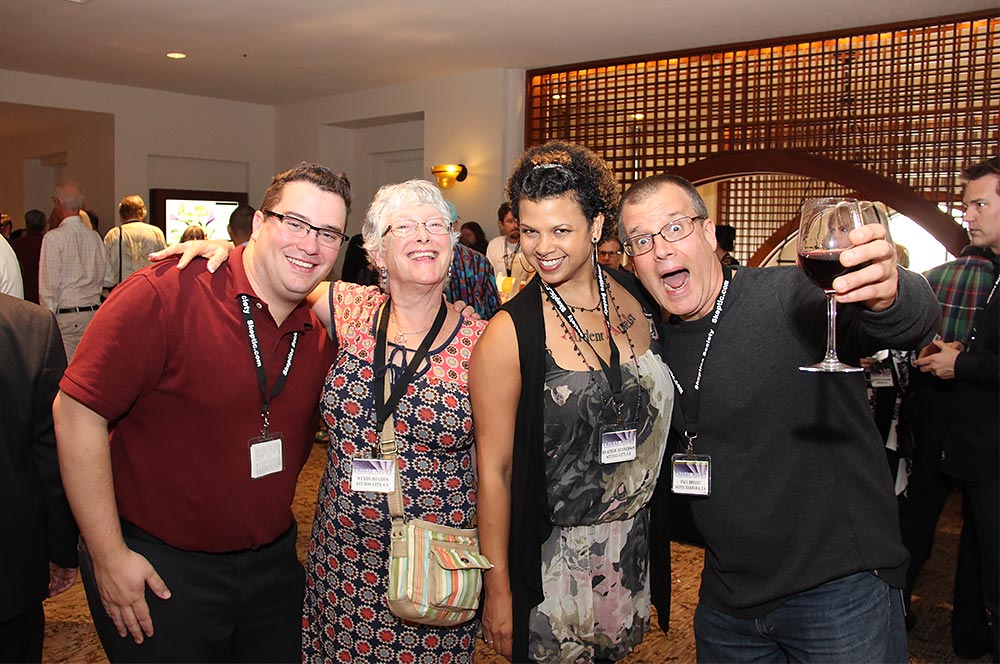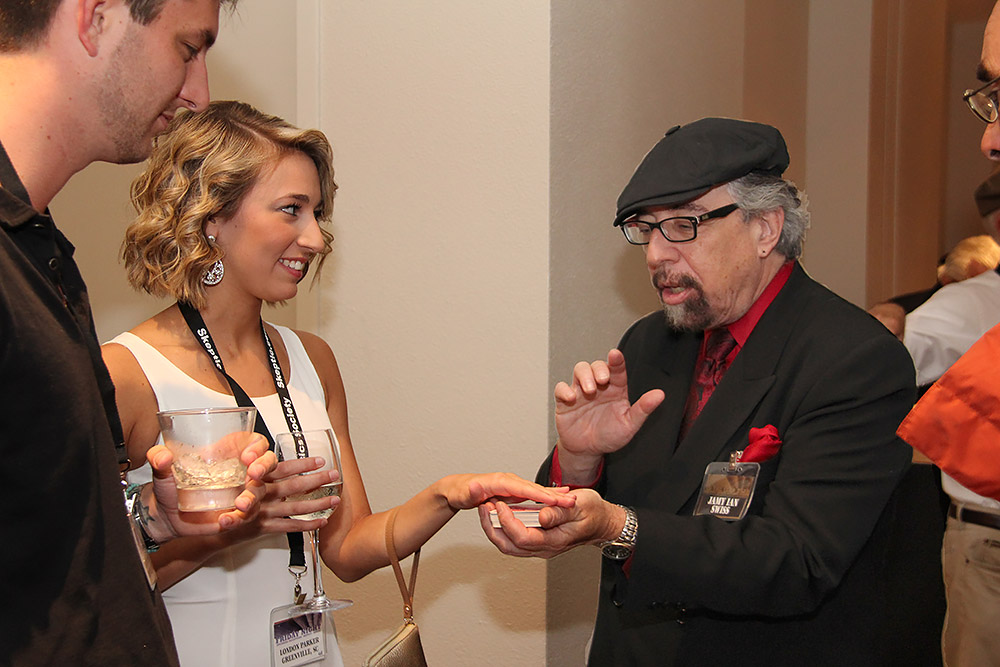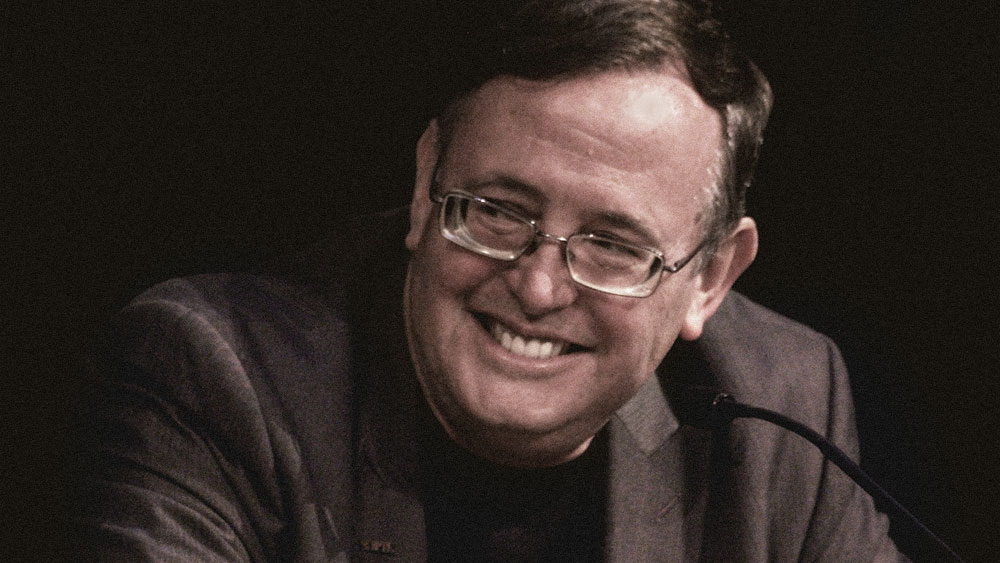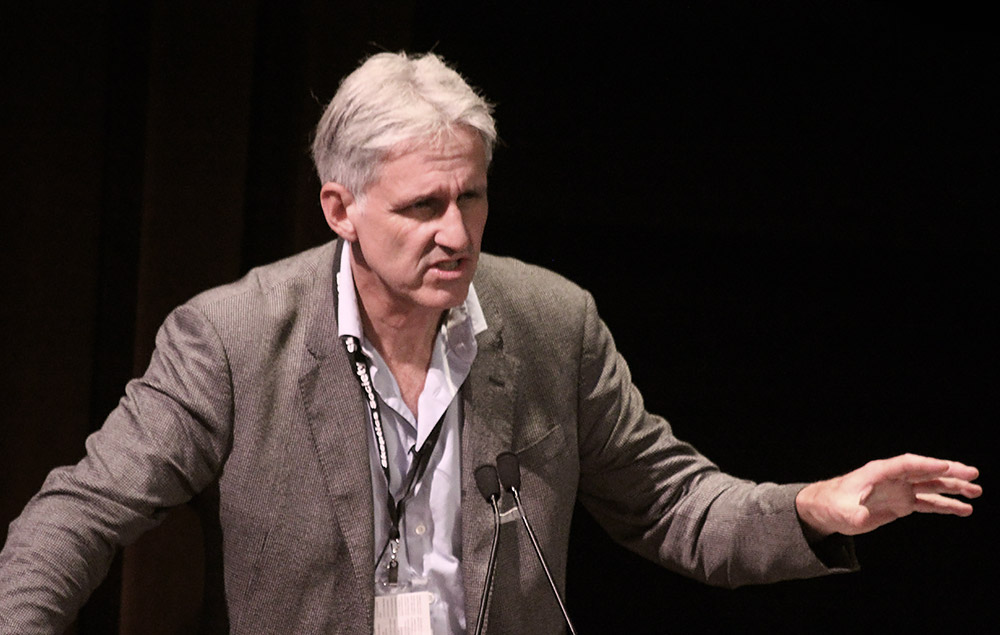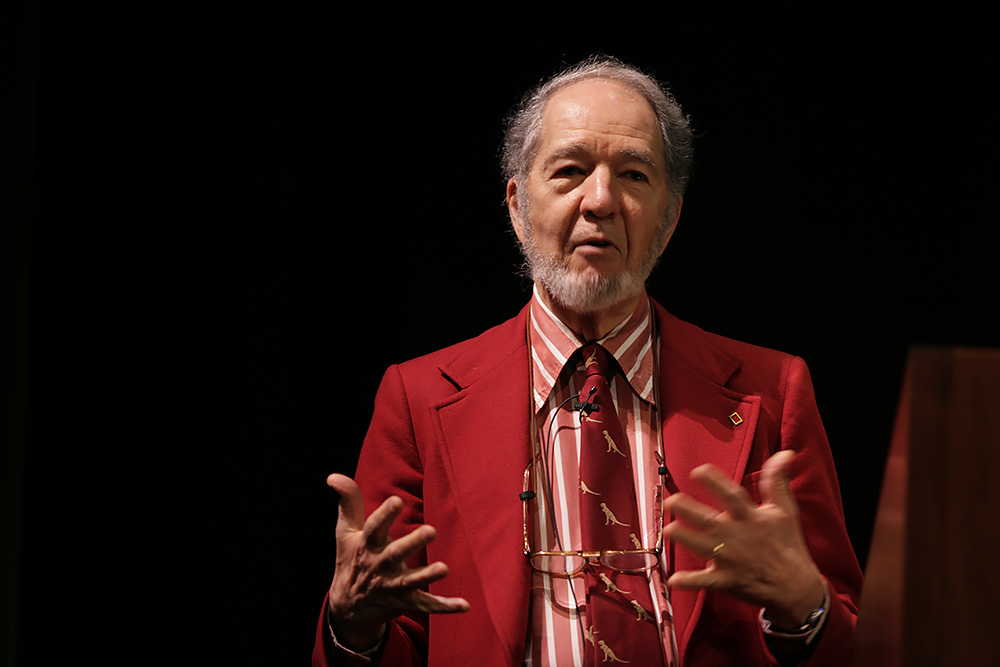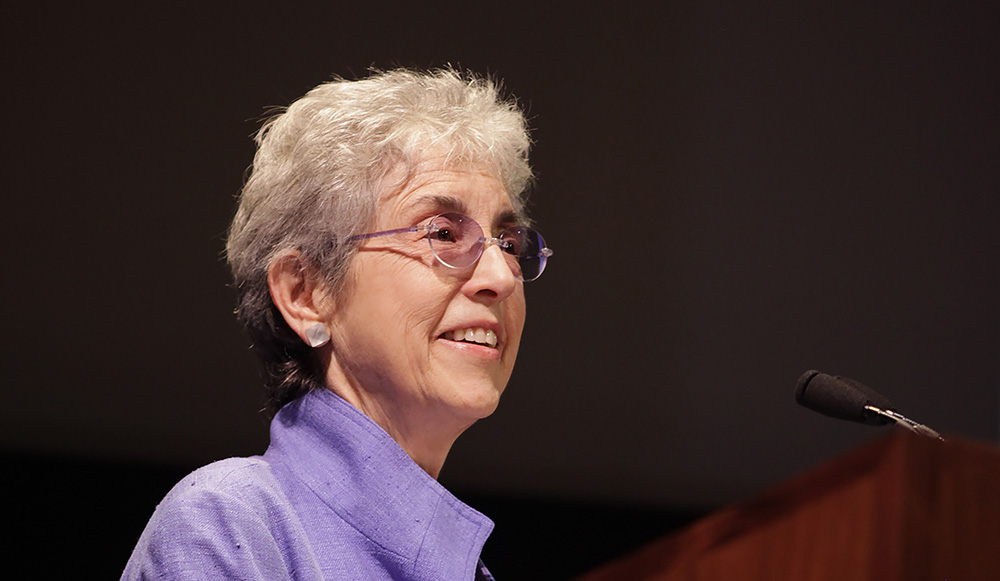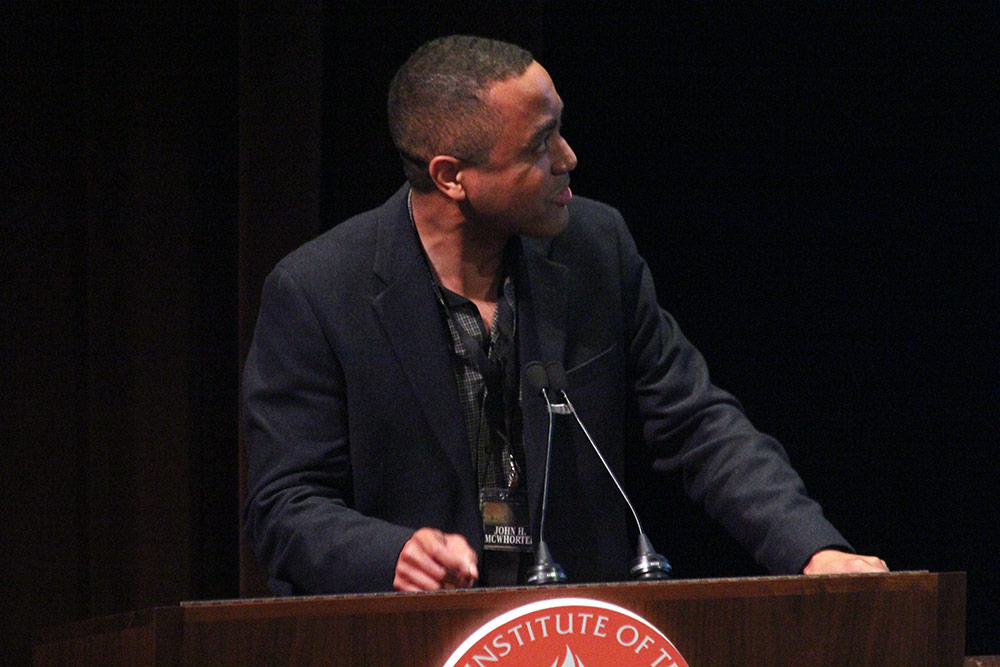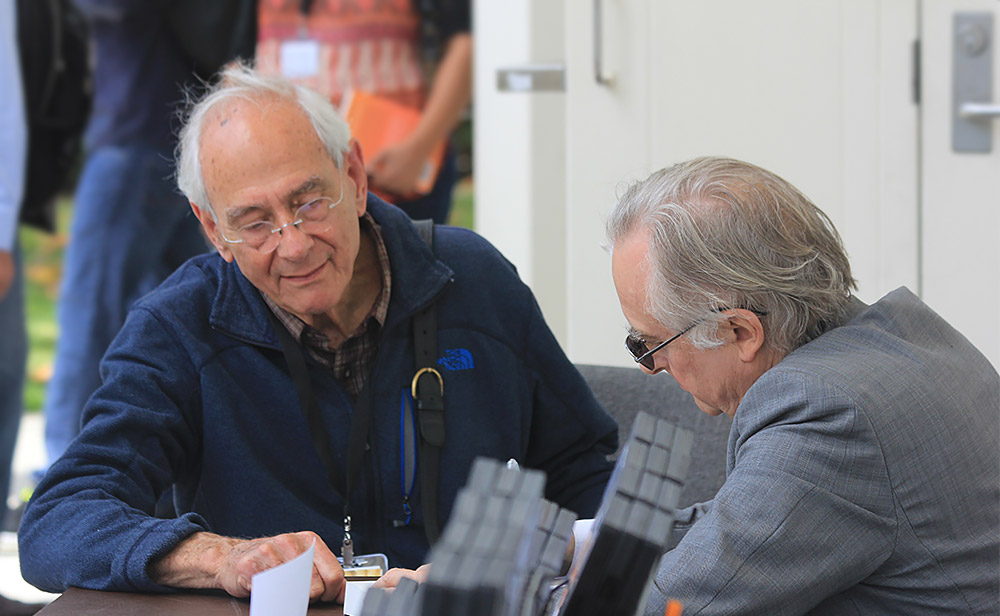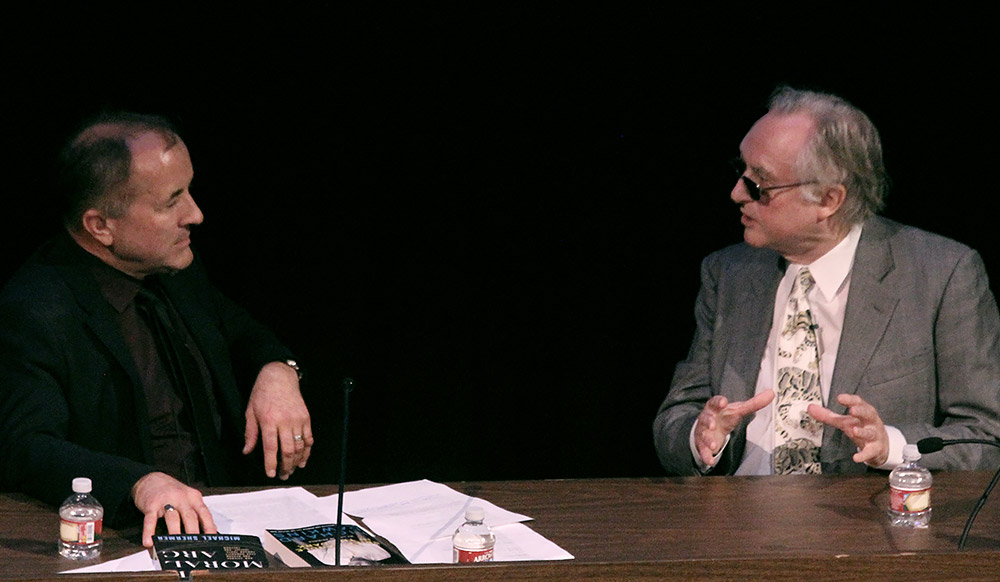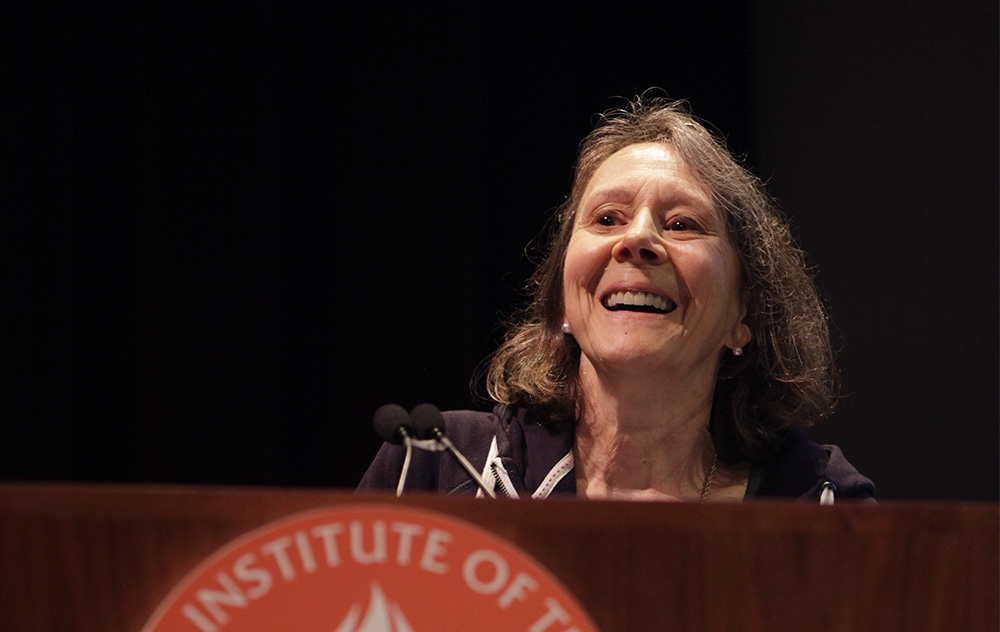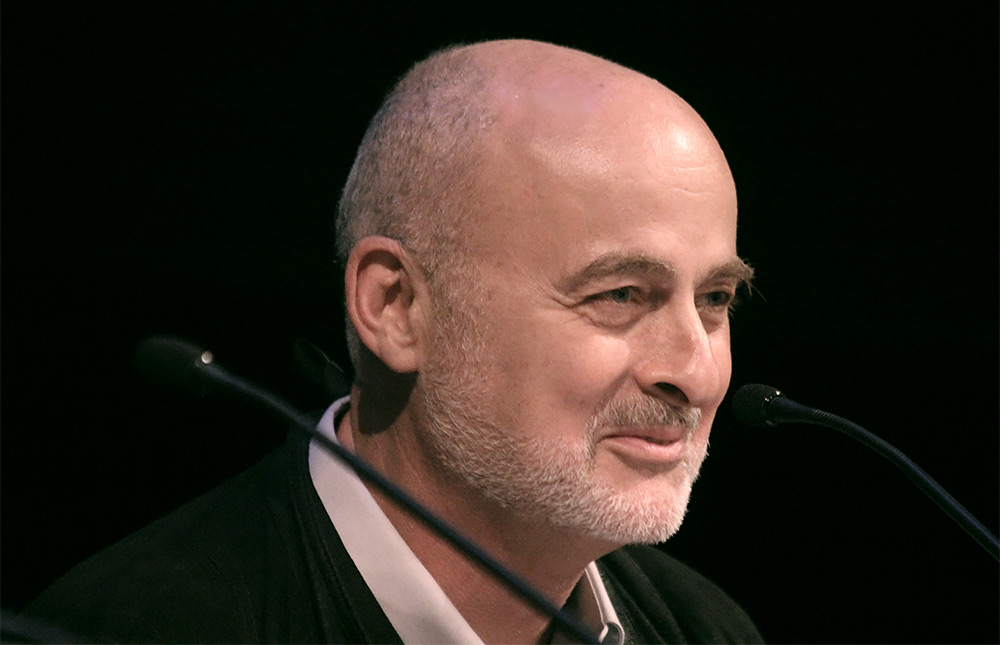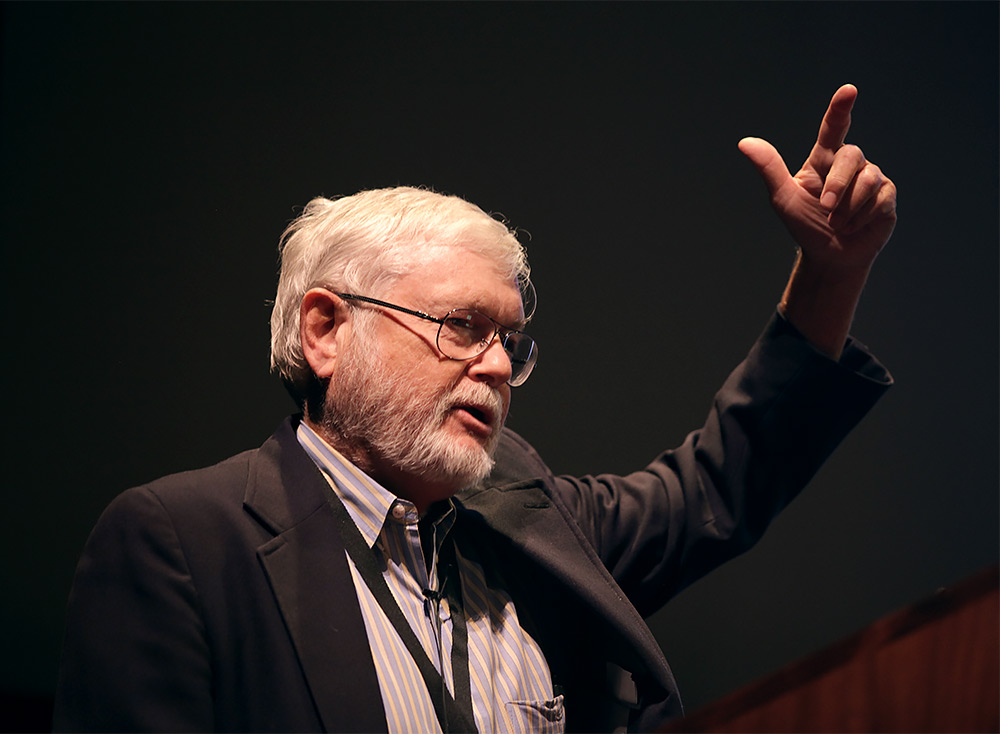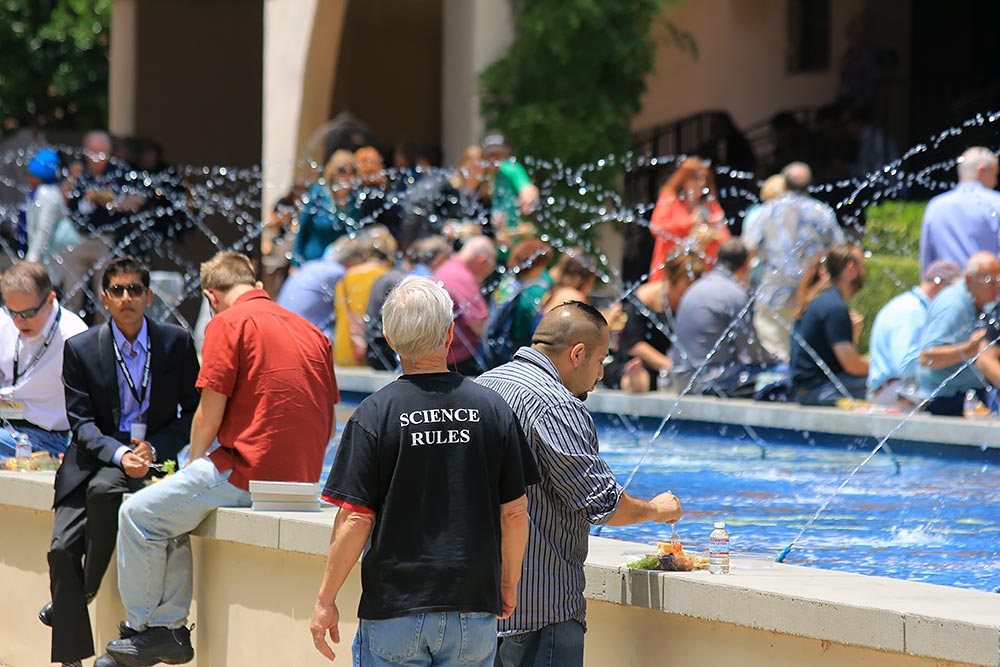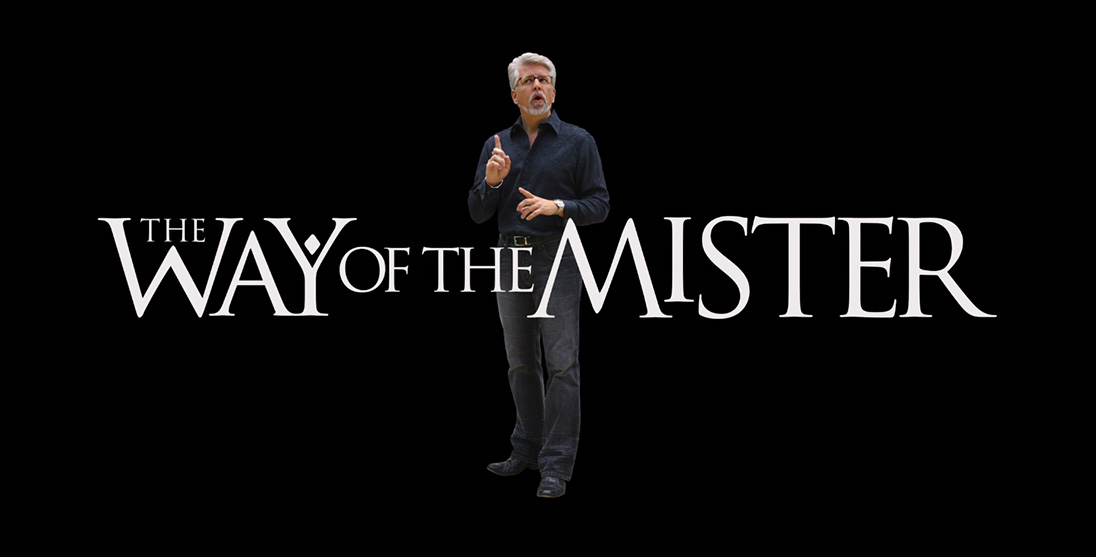About this week’s eSkeptic
In this week’s eSkeptic, William M. London reviews the Skeptics Society Conference on the Future of Science and Humanity that took place at Caltech May 29–31, 2015.
William M. London is a professor of public health at California State University, Los Angeles who specializes in the study of consumer health issues. He is tied for the record of most degrees (five) from the University at Buffalo (SUNY): BA in biological science; BA in geography; EdM in educational psychology; EdM in health education; and EdD. in health education. His Master of Public Health degree is from Loma Linda University. He completed all coursework toward a Master of Science in Clinical Research from Charles R. Drew University of Medicine and Science.
The Year 2525 Ain’t What It Used to Be
by William M. London
When I saw the lineup of world-class speakers for the Skeptics Society’s conference “In the Year 2525: Big Science, Big History, and the Far Future of Humanity (May 29–31, 2015) ” at Caltech’s Beckman Auditorium, I realized I had to be there, starting with the speakers’ reception and buffet dinner at The Westin Hotel in Pasadena featuring close-up magic performed by Jack Velour and after-dinner stage magic performed by Jamy Ian Swiss.
The opening talk of the conference by prominent paleontologist, geoscience researcher, and science educator Donald Prothero suggested horrible living conditions ahead if we continue on our present course. Prothero was like the ghost of Jacob Marley coming to haunt Ebeneezer Scrooge with three more ghosts: (1) mass extinctions, (2) global warming, and (3) depletion of limited mineral resources. These ghosts are no phantoms. There have been five major mass extinctions of species on our planet, and now we’re in the era of a sixth extinction that is a thousand times greater. He cited the book The Sixth Extinction by Elizabeth Kolber, which won the 2015 Pulitzer Prize for General Non-Fiction. (As if, I didn’t already have enough books on my reading to-do list!)
Prothero used the analogy of rivets popping out of an airplane wing to species dying off. The problem isn’t catastrophic right away, but when enough rivets pop out, the wing falls off. In other words, when enough species die off, ecosystems collapse. As well, he said we’re headed for a global increase in temperature of four degrees Celsius by the end of the century and that holding down the increase to just two degrees would be an enormous challenge. He described the problem of increasing tropical disease with the spread of insects accompanying warming climate. He said sea level has risen eight inches since 1900 and showed maps projecting how much of coastal areas around the world will be underwater if the melting of glaciers and ice caps continue unabated.
Prothero then moved on to the problem of finite mineral resources. For example, he noted that rare earth elements are available mainly from China. He presented Hubbert’s famous bell-shaped curve illustrating production rates of natural resources over time and said that we are already at the end of the oil age since it has become more and more difficult to maintain oil supplies to meet energy demands. He concluded his talk by emphasizing the need for green energy supplies and by pointing out how overpopulation contributes to the catastrophic problems he described.
The last question Scrooge asked the Ghost of Christmas Yet to Come was: “Are these the shadows of the things that Will be, or are they shadows of things that May be, only?” I thought of this as Prothero considered how much human progress has come and may continue to come at the expense of other species and the future habitability of our planet. I’m an optimist, but Prothero convinced me that we need to carefully study the sustainability of human progress. And that entails consideration of the likelihood of various calamitous scenarios along with the feasibility and potential positive and negative impacts of various solutions to the problems Prothero described.
Ian Morris, the Jean and Rebecca Willard Professor of Classics and Professor of History at Stanford University and a Fellow of the Stanford Archaeology Center, was next on the program. He spoke about his new book Foragers, Farmers, and Fossil Fuels: How Human Values Evolve, which focuses on how the source of energy a society relies on influences its cultural evolution that, in turn, impacts upon human values such as what is viewed as just and fair.
For example, Morris noted that hunter-gatherer tribes value political, economic, and gender equality. Hierarchies don’t work in such small societies. Violence is a common response to disruptive upstarts. By contrast, farming societies are larger and more complicated, requiring a division of labor. Thus, they are hierarchical with significant gender inequality. He characterized the violence in these hierarchical as state-sanctioned. Finally, Morris described fossil-fuel societies as having enormous populations, technology, and an extensive division of labor. Ordinary people are empowered through democracy and open society arrangements thrive. Keeping with the futuristic theme of the conference, Morris raised questions about networked post-fossil-fuel societies:
- What will fairness look like when brain-to-brain interfacing is common?
- What will political, economic, and gender hierarchies look like?
He mentioned two possible scenarios:
- A souped-up fossil fuel society that would be hierarchically flatter with increased egalitarianism.
- A society of some superhuman people with significant hierarchy.
Care to speculate about which scenario would be more successful in averting the catastrophes that Donald Prothero described?
The next speaker, Jared Diamond, Professor of Geography at UCLA, shared insights related to his field experiences in New Guinea. He began by discussing how people judge and misjudge dangers (an issue I emphasize as a consumer health specialist and healthy skepticism advocate). He noted that while hazards of the natural environment, violence, and infectious disease are greater problems in New Guinea than in the U.S., chronic disease hazards are greater here. Also, Americans have more remedies for hazards (such as orthopedic care to set broken bones). However, Americans tend to obsess about or overrate the wrong risks, such as terrorism, plane crashes, and nuclear accidents. Hazards tend to be perceived as more risky when they’re unfamiliar and seen as beyond our control.
In contrast, Diamond said we need to recognize bigger threats that are more familiar and within our control, like slipping and falling in showers, falling off stepladders, and tumbling down stairs. At age 77, Diamond said he has a life expectancy of 15 years. He quipped that with a 1 in 1000 risk of a fatal fall in a shower, he can expect to kill himself five times in his expected life. Thus, he advocated for what he called “constructive paranoia.” He summarized what we can learn from New Guineans regarding:
Bringing up children. In New Guinea, there are no helicopter parents and they don’t spank. Children have choices and responsibilities, and they develop social skills to bargain. Diamond said he modeled this parenting style in raising his own twin boys.
Staying healthy. Diamond claimed that there is no diabetes and heart disease among New Guineans, not because they die too young to develop these diseases but due to their vigorous physical activity and high-fiber diets that are low in salt and sugar. While a report from 1966 backs Diamond’s claim, I note that diabetes and heart disease have become increasingly prevalent in New Guinea as they adopt Western diets.
Alzheimer’s disease attenuation. Diamond said that bilingualism and multilingualism provides some protection against Alzheimer’s disease by working out the brain. I note that the Mayo Clinic says the evidence isn’t clear that speaking more than one language prevents Alzheimer’s disease. And working out the brain, at least through games developed by the brain training industry, has not been established as protection against Alzheimer’s disease development.
Next up was the inimitable social psychologist Carol Tavris, who began her talk with a clever joke and what I would call constructive silliness. She suggested that in 500 years, there would be a female Pope, but no God, and a white guy would be invited to speak on gender. Tavris noted that 25 years ago efforts to predict the future of how gender would be talked about didn’t predict gay marriage, the transgender movement, the concept of metrosexuals, a black president, and Sarah Palin, along with female leaders in Ireland and Turkey (not to mention Germany, whose Chancellor is not only female but holds a Ph.D. in quantum chemistry!). Nevertheless, Tavris offered a few extrapolations of current trends:
- Technology transformation of human nature (e.g., artificial intelligence, optogenetics, DNA alteration).
- Gender could be chosen at different times in one’s life as on a planet described in Ursula K. Le Guin’s novel The Left Hand of Darkness.
- We may be able to change racial characteristics including skin color.
- Ethnocentrism will shift to more trivial group differences.
- Technology won’t transform human capacities.
Tavris noted that despite the recent shift in thinking about homosexuality from preference to orientation, no clear biological component of homosexuality has been established. She talked about people having a variety of sexual thoughts and behaviors with indistinct categories of gender. She noted that identity is learned and one’s sense of identity is strongest when most under attack. She speculated about a future of many sexual possibilities with a shift back to thinking about sexual preferences rather than orientations.
Manhattan Institute linguistics scholar John McWhorter, an associate professor of English and Comparative Literature at Columbia University, was the last speaker of the morning program. McWhorter predicted that there will be fewer languages in 2525 since globalization kills them. Languages survive only if people learn them in the cradle. He said that after age 13, it is all but impossible to learn a language perfectly. He showed that small, obscure languages are especially complicated and difficult to learn with their many irregular verb forms.
He predicted that one in three humans will speak English, not because there is anything special about English, but because “it got there first,” as most Web sites are now in English. He described the influence of English as a path dependent phenomenon similar to the QWERTY keyboard standard.
While more people speak Mandarin than English, McWhorter said Mandarin will not be the universal language because the subtle tone differences in Mandarin make big differences in meaning and Chinese script is so difficult to decipher. He said it consists not merely of pictures, and described it as a “bleeding, inefficient, tragic mess.”
He predicted that languages will get easier, and since speech—not writing—is what language is about, language will be more oral. The title of his talk sums up his message: “World’s Languages in 2525: Fewer, Easier, Oraller.”
The morning program concluded with a panel discussion with the morning speakers, which focused on exporting and importing features of different cultures. As much as Diamond likes visiting New Guinea, he said he wouldn’t want to live there considering the violence and mistreatment of women. Tavris noted that you can’t export cultural features like you can export cheese and that outsiders can mess up cultural and economic rules of societies. Diamond noted that sometimes outside intervention is welcomed. He gave the example of New Guinea welcoming imposition of outside force to save them.
The afternoon program began with Richard Dawkins, one of the most influential scientists in the world, in conversation with the Skeptics Society’s Michael Shermer. Shermer brought up the Pew Research Center poll results from May, which showed that the 56 million people in the U.S. who are religiously unaffiliated (often called the “nones”) outnumber both mainline Protestants and Catholics. Dawkins generated laughs from the audience and media coverage with this comment: “One of the problems is that the so-called ‘nones’ often give up religion for something even worse. I mean, they take up Deepak Chopra or something like that.” (In his book The Seven Spiritual Laws of Success, Chopra’s “Law of Detachment” calls for relinquishing attachment to the physical universe and his “Law of Least Effort” calls for harmony, love, and accepting people, situations, circumstances, and events as they occur. Chopra ignored those laws and the day after the conference he sniped back at Dawkins on Twitter, which got him media attention.)
I enjoyed the intellectual stimulation Dawkins provided in his wide-ranging conversation with Shermer, who pushed him on political issues, such as to what extent the U.S. and UK should intervene in Middle Eastern matters involving the violation of human rights. Dawkins admitted that: “We on the left are so afraid of being thought of as racist that we bend over backwards…” while misogyny in Islam gets a free pass. While describing himself as an “old-fashioned imperialist” in objecting to severe female genital mutilation, he noted difficulties in intervening with cultures and the need to be very cautious before launching military actions with “boots on the ground.”
In the context of the evolutionary origins of morality, Shermer asked Dawkins his opinion on a popular theory of group selection, to which Dawkins replied “group selection is bollocks;” and that kin selection and reciprocal altruism explain altruism. He said that we are “programmed” with rules of thumb that work under normal environmental conditions that can result in altruism. He gave as an example a bird’s rule of thumb to feed squawking things in a nest, but by following the rule a bird can wind up feeding another species. That’s a mistake in a Darwiniain sense, but it’s a wonderful mistake because it produces niceness. After all, he said, no one wants to live in a Darwinian world of morality; real morality is not Darwinian. Shermer pressed him to use a different word than “mistake” because it implies that morality is not real, in some transcendent sense. Dawkins replied that they were quibbling about semantics. He endorsed Shermer’s latest book The Moral Arc: How Science and Reason Lead Humanity toward Truth, Justice, and Freedom but his phrasing may not have come out as intended. Dawkins gave the audience a good laugh when he said: “The last chapter of The Moral Arc is very inspiring. It’s worth plodding through to the end.”
As a professor of public health, I was delighted that the next speaker, Esther Dyson, a distinguished expert in business and technology, discussed her work in the area of community-based disease prevention (to make a difference in the here and now, if not for the far future of humanity). She noted that little is spent on prevention and most health interventions are too weak to have an impact—like peeing in reservoir. So in order to create a healthier world, she decided to begin with one community at a time through HICCup, the not-for-profit Health Initiative Coordinating Council she founded.
She described her team’s approach as pouring rose water into five bathtubs. The five “bathtubs” are geographically remote communities selected from 42 communities from 26 states that submitted applications last year for “The Way to Wellville Challenge.” Motto: “five places. five metrics. five years.” The five chosen places are: Clatsop County, Oregon; Greater Muskegon, Michigan; Lake County, California; Niagara Falls, New York and Spartanburg, South Carolina. It wasn’t clear to me what five metrics were chosen for assessing the outcome of the project and she described the initiative as “a pseudo-clinical trial.” Epidemiologists refer to such projects as community trials or field trials.
I’m not sure what community-oriented public health intervention plans for the Wellville communities look like, but Dyson mentioned some of the issues to be addressed include jail-acquired insolvency, reduction of incarceration, and making it easy for companies to make money selling good food. I couldn’t tell from Dyson’s presentation or from the HICCup Web site how well the five-year study of the Wellville communities is aligned with principles of community-based participatory research that are emphasized in projects supported by the National Institutes of Health. Nevertheless, it was good to learn about an initiative aligned with the socio-ecological framework for prevention.
Next up was the scientist, best-selling author, and tech-futurist David Brin, who posed the question: “How do we deal with the tentative Renaissance Enlightenment that we’re in?” He said that future scenarios explored in science fiction are sometimes apocalyptic and dystopian. But his overall message was hopeful. He talked about cameras now coming at us from anywhere, but he hailed a 2013 court decision giving citizens the right to record the police. He talked about the history of technology and described the development of printing and glass lenses as the first prosthetics. He suggested that new technologies present crises of progress. “Grouches” may be right about new technologies in the short-term, he said, but “transcendentalists” have been right after painful adjustments. Brin discussed the dance of competition and cooperation that creates a positive sum game rather than a zero sum game in our country. He described regulated markets as serving to ensure justice. Liberals, he said, should view Adam Smith, as their hero.
Reading Smith’s The Wealth of Nations is now on my reading to-do list—right ahead of the novel Timescape by Gregory Benford, a professor of physics at the University of California, Irvine, who has worked with other scientists and science fiction writers in addressing the challenges and opportunities of a 100-year project to create a starship. That’s quite a visionary goal. By contrast, he noted that Thomas Jefferson thought it would take a thousand years for the American frontier to reach the Pacific Ocean.
After mentioning our lack of attention to the present-day problem of some six million tons of debris that humans have left in orbit around the earth, Benford focused on the challenges of space exploration. “Space will kill you,” he said. Threats from space travel include fire, radiation, air leaks, low oxygen, low gravity, carbon dioxide accumulation, and bad food. But he also mentioned potential benefits. For example, asteroids are a source of water and Mars has same surface area as land areas of earth. Benford suggested that we should expect the unexpected when we open new horizons, but it will pay off, even in 2525.
The final speaker on the program was Arthur Benjamin, Smallwood Family Professor of Mathematics at Harvey Mudd College, who has been described as the world’s greatest living lightning calculator. Benjamin gave one of his many remarkable performances of solving arithmetic problems in his head faster than audience members can with calculators. I was especially amazed when he rapidly constructed a 4×4 magic square based on entering an audience member’s birth date in the top row. Benjamin noted that 47% of U.S. teachers have standardized math test scores in the bottom, while in elite-performing countries in mathematics such as Singapore, 100% of teachers are in the top third.
I left the conference utterly confused about the prospects for humanity in 2525, but cautiously optimistic for the future my son will face. One of my immediate concerns is deciding which book authored by one of the conference speakers I should read next. ![]()


